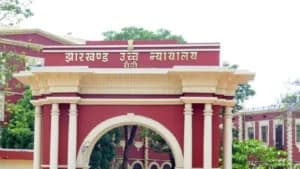The Supreme Court of India has issued a notice to the Union Government in response to a Public Interest Litigation (PIL) demanding an independent and neutral process for appointing the Comptroller and Auditor General of India (CAG). The petition, filed by the Centre for Public Interest Litigation (CPIL), argues that the current selection process, which is solely controlled by the Union Government, compromises the CAG’s independence.
The PIL advocates for a selection committee comprising the Prime Minister, the Leader of the Opposition, and the Chief Justice of India to oversee the appointment of the CAG. Senior Advocate Prashant Bhushan, appearing on behalf of CPIL, asserted that the lack of an independent selection process has affected the CAG’s ability to function autonomously.
“In recent times, the CAG has lost its independence,” Bhushan stated before the court.
A Supreme Court bench, comprising Justice Surya Kant and Justice N.K. Singh, inquired whether there were specific instances of deviation in recent years that raised concerns about the CAG’s independence. In response, Bhushan cited declining CAG reports and a reduction in staff strength as key indicators of a weakening institution.
Bhushan further argued that audits concerning states ruled by the Bharatiya Janata Party (BJP) were being stalled, highlighting Maharashtra as an example. He emphasized that just as the Supreme Court has previously intervened in appointments of the Central Bureau of Investigation (CBI) Director and the Chief Election Commissioner to ensure their independence, a similar intervention is necessary for the CAG.
Justice Surya Kant, while acknowledging the concerns, stated:
"We have to trust our institutions also."
He referenced Article 148 of the Constitution, which grants the CAG the same level of protection as a Supreme Court Judge in terms of removal from office. However, Bhushan countered by pointing out that similar protections exist for Election Commissioners, yet the Supreme Court found them inadequate to ensure independence, leading to the Anoop Baranwal judgment.
Read Also:- Supreme Court Refuses Bail to Former Gujarat IAS Officer Pradeep Sharma in Land Allotment Corruption Case
Justice Kant, however, noted the difference in constitutional provisions for Election Commissioners, stating that their appointment is subject to a law made by Parliament. He questioned whether the Supreme Court could intervene in cases where the Constitution explicitly grants the President the power to appoint the CAG.
"Where the Constitution has provided an unbridled power of appointment, should and to what extent the Court rewrite the provision?" Justice Kant asked.
After hearing the arguments, the bench decided to issue a notice to the Centre, seeking its response on the matter. The court also tagged the petition with another similar plea, signaling the gravity of the issue.
Justice Kant observed that the case should be heard by a three-judge bench, with Bhushan suggesting that even a Constitution Bench could deliberate on the matter.
Case Reference: Centre for Public Interest Litigation vs Union of India W.P.(C) No. 194/2025















